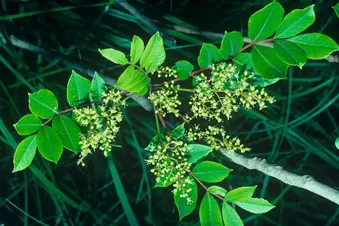What's Causing Your Itch?


Question 1/11
Why does scratching seem to temporarily relieve an itch?
- It gets rid of dead skin cells
- It may block nerve cells from sending signals to the brain
- It increases blood flow to the area
- None of the above
Question 2/11
Scratching a poison ivy rash will cause it to spread.
- True
- False
Question 3/11
Why does a mosquito bite itch?
- Blood loss
- Toxins in the mosquito's venom
- Protein in the mosquito's saliva
- All of the above
Question 4/11
What's the name of this itch-causing plant?
- Poison ivy
- Poison oak
- Poison sumac
- Poison birch
Question 5/11
Applying butter to an itchy sunburn will help it heal.
- True
- False
Question 6/11
The medical name for itch is:
- Pruritus
- Bursitis
- Mange
- None of the above
Question 7/11
What itch-inducing bug is this?
- Louse
- Chigger
- Flea
- Bedbug
Question 8/11
Oatmeal baths will help with itchy skin.
- True
- False
Question 9/11
Keeping cool can reduce itchiness.
- True
- False
Question 10/11
Cuts and burns can itch as they heal because of
- Wound memory
- Histamine
- Pseudophils
- Cauterization
Question 11/11
What is "contagious itch"?
- Infection with mites
- Leprosy
- Athlete's foot
- None of the above